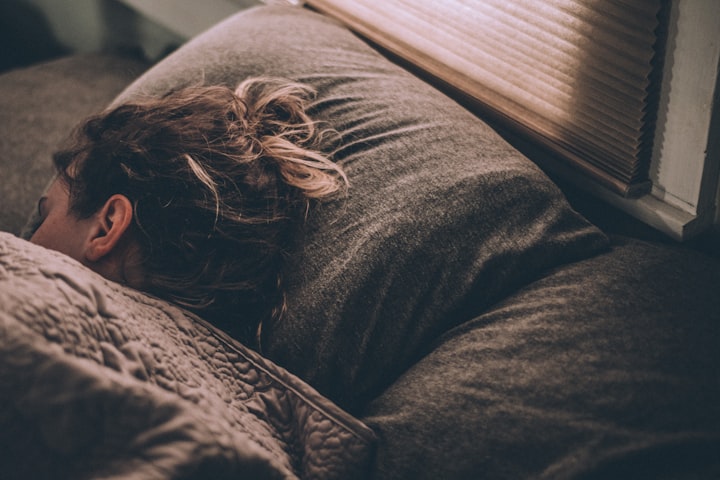
The blog delves into the science behind the multifaceted sleep cycle and its repeating pattern of four key phases - NREM 1, 2, 3 and REM. These discrete phases have their own characteristics and serve vital roles in physical/mental health. Disruptions can negatively impact immunity, raise disease risk, and affect cognition and emotional regulation.
Insomnia, troubling falling/staying asleep, disturbs normal sleep-wake cycles. Prolonged sleeplessness may increase risks of depression, heart disease, cognitive decline. Main causes are stress, inconsistent sleep routines, medical issues, certain medications. Types of insomnia are onset, maintenance, terminal, chronic, psychophysiological, paradoxical and secondary. Addressing underlying factors is important for management.
The sleep regulating hormone melatonin is released in the brain’s pineal gland in darkness, suppressed by light. It helps treat issues like jet lag and insomnia by adjusting circadian rhythms. Melatonin supplements can aid sleep onset and quality, especially helpful for those with disrupted circadian rhythms. Dosage varies individually. Natural food sources like tart cherries, nuts, seeds and oily fish provide dietary melatonin.
The herb chamomile has traditionally been used for its calming effects. Substances like apigenin bind to brain receptors, relieving anxiety. Chamomile tea is commonly drunk for insomnia for its sleep enhancing qualities. Melatonin and chamomile may have combined benefits but individual reactions vary. Other herbal remedies include valerian, passionflower and lavender.
We can easily include plant-based nutraceutical supplement like sound sleep gummy enriched with chamomile, melatonin many other natural elements like valerian root in our daily consumption in order to improve our sleep cycle and the quality of sleep, which soothes anxiety and relaxes our body, easily enabling it to experience better quality of sleep and regulation of circadian cycle.
The circadian rhythm or intrinsic body clock governs sleep/wake patterns, metabolism etcetera in tune with 24 hour cycles. Disruption exacerbates insomnia and poses general health risks. Lifestyle measures help align with natural circadian rhythms – limiting nighttime light, regular sleep schedules, exercise and sleep hygiene practices. Mind-body techniques also trigger relaxation. Diet affects sleep cycles; tryptophan foods boost melatonin while late night sugar/caffeine disrupts sleep.
Cognitive behavioral therapy is an insomnia treatment targeting thoughts/ behaviors hindering sleep, promoting positive sleep patterns. Those working irregular shifts should optimize sleep hygiene while employers facilitate rest through workplace policies. Beyond insomnia, disorders like sleep apnea, restless leg syndrome etc severely disrupt sleep and require varied diagnostic/treatment approaches.
Regular exercise enhances sleep via chemical and circadian rhythm regulation. Age-related sleep changes and associated risks necessitate tailored sleep therapies emphasizing sleep hygiene. Sleep tracking apps/devices now provide personalized sleep quality insights and recommendations using AI and biometric data. Those traveling across time zones can minimize jet lag through timed sunlight/melatonin intake and sleep schedule regulation.
For stubborn insomnia, professional assistance enables proper assessment and evidence-based treatment like CBT for long term improvements. Overall, melatonin's sleep-regulating and chamomile’s calming effects provide natural means of improving sleep quality and lowering stress. Healthy lifestyle measures also remain key for restful sleep and wellbeing.
In closing, getting healthy, restorative sleep is vital for both physical and mental wellbeing. The intricate science behind the different stages of our sleep cycles illustrates just how crucial it is to make sleep a priority. From lifestyle tweaks like limiting nighttime light exposure, maintaining proper sleep hygiene habits, and including sleep-supporting nutrients through foods and supplements, to evidence-based treatments like CBT for chronic insomnia, there are myriad ways we can enhance our sleep patterns. By understanding the role of our circadian rhythms and biological factors like melatonin, as well as leveraging calming botanicals like chamomile, we can work holistically to promote the quantity and quality of sleep necessary for overall health and functioning. Making sleep a central component of a healthy lifestyle, while also seeking professional guidance when necessary, allows us to truly thrive both mentally and physically.
About the Creator
Zaocare
Delicious, vegan gummies & tablets made with minimal chemicals. No gluten, soy, allergens, or trans fats. Launched in Oct 2023, we make healthy habits feel good. #plantbased #vegan #nutraceuticals #healthylifestyle






Comments
There are no comments for this story
Be the first to respond and start the conversation.